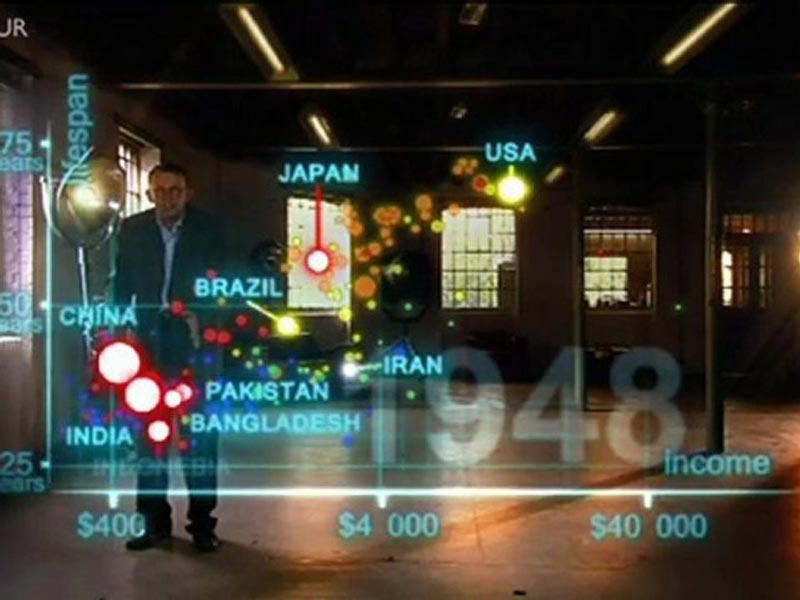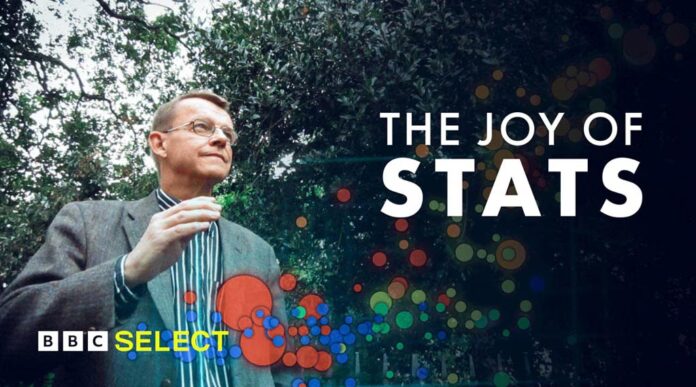Hans Rosling, a Swedish statistician, doctor, and professor, was one of the most influential figures in my life. His unique approach to presenting data and his unwavering commitment to facts changed how I perceive the world.
Rosling’s work, particularly his book “Factfulness,” profoundly impacted me, challenging my preconceived notions and biases. Learning about his passing in 2017 left a void, but his legacy inspires me and countless others to see the world through a fact-based lens.
In this post, I will introduce Rosling’s remarkable life and work and share how his insights transformed my perspective. We will explore the key concepts from his groundbreaking book, “Factfulness,” and discuss how to apply his lessons to improve our lives.
By the end of this post, you will appreciate Hans Rosling’s genius and be equipped with the tools to navigate the world with a more fact-based approach. So, let us start on this enlightening adventure, celebrating the life and wisdom of a true visionary who changed how we understand our world.
The Man Behind the Facts: Hans Rosling’s Life and Work
Born in Uppsala, Sweden, in 1948, Hans Rosling’s passion for understanding the world through data began early in his life. His journey as a statistician, doctor, and global health expert was marked by numerous achievements and accolades.
Education and early career:
- Studied statistics and medicine at Uppsala University
- Earned a Ph.D. at Uppsala University in 1986 for his research on konzo, a paralytic disease
Making a global impact:
- Served as a doctor in Mozambique, where he witnessed the devastating effects of poverty on health
- Co-founded Médecins Sans Frontières (MSF) Sweden, bringing medical aid to those in need
- Became a professor of International Health at Karolinska Institute in Sweden
The birth of Gapminder:
- Founded the Gapminder Foundation in 2005 with his son Ola and daughter-in-law Anna
- Developed the Trendalyzer software, which created stunning visualisations of global data
- Gapminder’s mission: to fight devastating ignorance with fact-based worldviews
Awards and recognition:
- Received numerous awards for his groundbreaking work, including the Illis Quorum and the Grierson Awards
- Named one of Time magazine’s 100 Most Influential People in the World in 2012
Hans Rosling’s life was not without challenges. He battled health issues, including a rare form of hepatitis and pancreatic cancer. Despite these obstacles, he remained dedicated to promoting a fact-based understanding of the world until his passing on February 7, 2017.
How Hans Rosling Impacted My Life
My fascination with data and its power to convey meaningful insights began during my PhD in computational fluid dynamics (CFD). Although my research focused on internal flows within engines, I was drawn to presenting data creatively and visually appealingly. I enjoyed the challenge of making complex scientific information accessible and engaging, even if it meant deviating from the conventional approach.
In 2010, I stumbled upon a BBC documentary called “The Joy of Stats,” featuring Hans Rosling. I was instantly captivated by his unique ability to bring data to life. Rosling’s enthusiasm and skill in presenting statistics in a way that challenged preconceived notions and highlighted the truth behind the numbers were truly inspiring.
His engaging approach and the way he used creative visualisations to convey complex information left a lasting impression on me. If you haven’t already seen it, I highly recommend watching the full documentary “The Joy of Stats” (embedded below). It’s a fascinating exploration of how data can be used to uncover insights and change how we perceive the world.
Alongside Rosling, the documentary also introduced me to the work of David McCandless, an artist and author who showcased the beauty and impact of data visualisation. McCandless’s book “Information is Beautiful” further fuelled my passion for presenting data in innovative, visually striking ways.
Inspired by these two remarkable individuals, I began incorporating their approaches into my work. I strived to create data visualisations that conveyed the necessary information and told a compelling story. Hans Rosling’s influence profoundly impacted how I viewed and communicated data professionally and personally.
However, my admiration for Rosling grew more profound when I learned of his passing in 2017 while reading Bill Gates’s book “How to Avoid a Climate Disaster.” Gates’s tribute to his close friend and colleague highlighted Rosling’s unwavering commitment to facts and his ability to see the world objectively. This revelation left me feeling a profound loss and a renewed determination to continue Rosling’s legacy.
Rosling’s work challenged me to think critically about the information I consumed and the opinions I held. He encouraged me to question the status quo, to look beyond the influence of so-called experts and media personalities, and to base my understanding of the world on facts. His approach has become a guiding principle in my life, helping me navigate discussions with friends, family, and colleagues, even when the facts may contradict popular belief.

“Factfulness”: A Groundbreaking Book That Challenges Our Worldview
“Factfulness: Ten Reasons We’re Wrong About the World – and Why Things Are Better Than You Think” is a book co-authored by Hans Rosling, his son Ola Rosling, and his daughter-in-law Anna Rosling Rönnlund. The book challenges our preconceived notions and offers a refreshing perspective on the state of the world.
At its core, “Factfulness” advocates for a fact-based worldview, encouraging readers to base their understanding of the world on data and statistics rather than emotions or instincts. Rosling argues that our perception of the world is often distorted by ten common instincts, such as the gap instinct, the negativity instinct, and the blame instinct, which lead us to overestimate problems and underestimate progress.
The book presents a compelling case for shifting our thinking and embracing a more fact-based approach. Relying on data and evidence can help us better understand global trends, challenge our biases, and make better-informed decisions.
Throughout the book, Hans Rosling and his co-authors provide numerous examples and data-driven insights that shed light on humanity’s remarkable progress in recent decades. They tackle global poverty, health, education, and violence, demonstrating how a fact-based perspective can paint a more optimistic world picture.
The impact of “Factfulness” has been far-reaching, garnering praise from influential figures such as Barack Obama, who called it:
A hopeful book about the potential for human progress when we work off facts rather than our inherent biases.
Microsoft founder Bill Gates has also lauded the book, describing it as:
One of the most important books I’ve ever read – an indispensable guide to thinking clearly about the world.
“Factfulness” is a potent reminder that we can better understand the world and create a better future for all by embracing facts and data.
Applying Professor Rosling’s Lessons to Improve Our Lives
Hans Rosling’s approach to understanding the world through data has transformed my perspective since I first encountered his work in 2010. His teachings align perfectly with my passion for presenting complex information visually, a skill I honed during my PhD studies years before and also how my brain works due to my dyslexia.
Rosling’s insights have continually challenged me to question assumptions and seek reliable data in all aspects of life. In our current climate of information overload and polarised views, Rosling’s principles from “Factfulness” offer invaluable guidance. In the current world of clickbait, fast food like junk information/data, soundbites, summarising, influencers, and so-called experts, it becomes hard to see facts from fiction and science from pseudoscience.
These ideas have reshaped how I consume and interpret information, leading to more balanced and informed decisions. The following sections explore insights from Rosling’s book that I found insightful. These concepts help us all develop a more nuanced, fact-based understanding of the world around us.
Trusting the Right Sources in the Information Age
Hans Rosling emphasises the importance of discerning reliable sources in today’s data-rich world. Here are key takeaways:
- Be wary of dramatic news: Media often focuses on extraordinary events, skewing our perception.
- Question your instincts: Our first impressions can be misleading.
- Seek diverse perspectives: Don’t rely solely on experts or activists, as they may have biases.
- Look for data from reputable organisations: The World Bank and the UN often provide reliable statistics.
- Remember: Good news isn’t usually newsworthy, but it’s happening more often than we realise.
By considering these principles, we can develop a more balanced and accurate worldview, cutting through the noise of sensationalised information.
Moving Beyond the Blame Game with Hans Rosling’s Insights
Rosling’s approach to understanding complex issues challenges our tendency to assign blame. Here’s how we can shift our perspective:
| Instead of blaming… | Consider this… |
| Businesses | The influence of shareholders and market demands |
| Journalists | Systemic factors in media and audience preferences |
| Refugees | Restrictive policies forcing dangerous migration routes |
| Foreigners | Historical contributions to global issues |
| Political leaders | Limitations of individual agency in complex systems |
Hans Rosling encourages us to look beyond individual culpability and examine the interconnected systems. This approach provides a more nuanced understanding and opens up more effective avenues for addressing global challenges.

Embracing Factfulness in Education, Business, and Personal Life
Hans Rosling’s principles can transform various aspects of our lives:
Education:
- Teach children to interpret data critically
- Incorporate fact-based frameworks into curricula
- Encourage lifelong learning and updating of knowledge
Business:
- Recognise changing global market dynamics
- Adapt strategies based on factual trends
- Use data-driven decision-making
Personal Growth:
- Regularly update your worldview
- Challenge personal biases with facts
- Develop a more optimistic yet realistic outlook
Seeing the World Clearly: Overcoming Optical and Global Illusions with Hans Rosling’s Guidance
Hans Rosling often compared global misconceptions to optical illusions. Both stem from how our brains process information. To overcome these, we can:
- Acknowledge our biases
- Seek out contradictory data
- Use visual aids to understand complex information
- Compare current situations with historical data
- Look for gradual improvements, not just dramatic changes
Remember: Just as optical illusions persist even when we understand them, global misconceptions may linger. However, awareness is the first step towards clearer thinking.
The Power of Data Analysis: Revealing the Stories Behind the Numbers
Hans Rosling showed us that numbers alone aren’t interesting; the stories they tell that matter. Here’s how we can apply his approach:
📊 Look beyond averages to understand the spread of data
📈 Use visuals to make complex information accessible
🔍 Dig deeper into statistics to uncover hidden trends
🌍 Compare data across different regions and periods
💡 Use data to challenge assumptions and spark curiosity
Hans Rosling’s examples transform dry statistics into compelling tales that help us better understand our world. This approach informs and inspires action towards positive change.
Carrying Forward Hans Rosling’s Legacy of Factfulness
Hans Rosling’s impact on my life and worldview cannot be overstated. His passionate approach to data and facts transformed how I perceive and interpret information. When I learned of his passing, I was genuinely crestfallen, feeling as though we’d lost a beacon of clarity in an increasingly complex world.
Rosling’s dedication to presenting facts in an engaging, accessible manner was revolutionary. He showed us that understanding global trends can be enlightening and even exciting.
Through his work, Rosling challenged us to question our assumptions, seek reliable data, and approach global issues with a balanced perspective. He encouraged us to see the progress being made in the world without ignoring the challenges that remain.
As we carry Hans Rosling’s legacy forward, let’s commit to embracing ‘Factfulness’ daily. By doing so, we can make more informed decisions, foster better understanding, and contribute positively to our communities and the world.
I’m profoundly grateful to have encountered Hans Rosling’s work. His insights continue to guide my thinking and inspire my actions. While he is deeply missed, his impact lives on through the countless individuals he’s influenced, including myself.
Thank you, Hans Rosling, for showing us the joy of stats and the power of a fact-based worldview. Your legacy continues illuminating our path towards a more informed and hopeful future.


